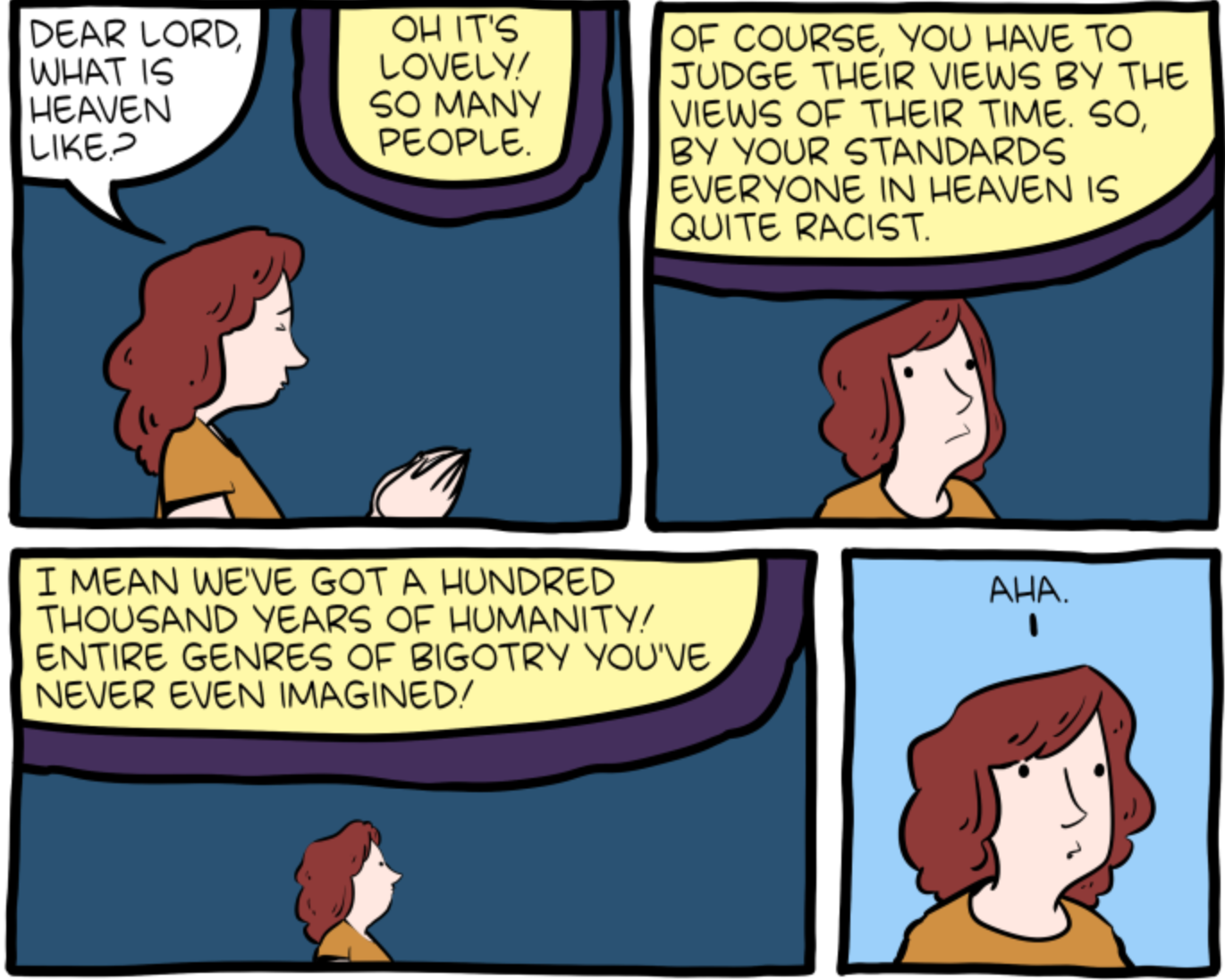Theosophical racism
Those first four panels resonated with my recent experience skimming Helena Blavatsky's The Secret Doctrine: The Synthesis of Science, Religion, and Philosophy. Vol II — Anthropogensis (1888). I learned of Blavatsky's existence due to the restaurant located in her former residence, and my sense of her influence in Philadelphia was reinforced by years of walking past the United Lodge of Theosophists.
I expected The Secret Doctrine to be nuttier than squirrel poop, as indeed it is. But I wasn't prepared for its extreme mythic racism, endorsement of (fantastical versions of) eugenics, and so on. In retrospect, I should have realized that late 19th-century fantasy would be like that. I'll spare you the details of Blavatsky's theories of lost continents and their associated "root races" — you can read Wikipedia's summary, or dive into the 1888 tome yourself if care. But I'll reproduce a few illustrative quotes from the book.
Read the rest of this entry »
